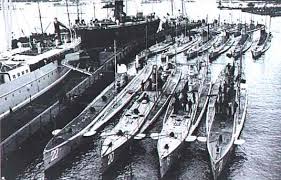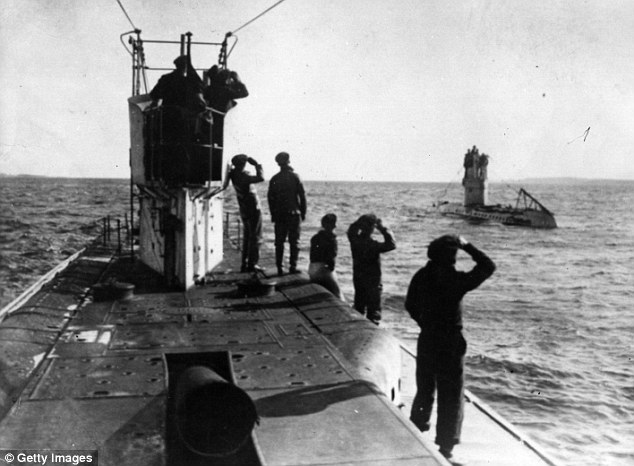Now Merchant as Well as Warships Legitimate Targets.
American Ships at Risk.
Special to The Great War Project
(31 March-3 April) Suddenly, the war at sea reaches a boiling point.
“On March 31 [a century ago],” writes historian Martin Gilbert, “more ships were sunk in a single day, twenty-nine, than in the war up to that point, and 161 British lives were lost.”
This, observes Gilbert, “despite the risk of alienating neutral America.”
Indeed, to counter Germany’s determination to attack all shipping, belligerent or neutral, it becomes clear than Britain will widen – and tighten – its naval blockade of Germany.
That presents US President Woodrow Wilson with serious challenges. Wilson wants the US as a neutral power to be free to trade with any belligerent state, including Germany.
Now, that can put American ships if they try to penetrate the blockade, in direct confrontation with British warships.
The source of the tension between the British and the Americans is Germany’s more extensive use of a new and powerful weapon — the submarine.
“We cannot…ignore the change in methods of warfare,” writes US Secretary of State William Jennings Bryan one hundred years ago in a note to Wilson. “If we recognize the submarine as a legitimate engine of war, we cannot ignore the change in the location of the blockade line made necessary by the use of the submarine.”
Jennings is disturbed, reports historian Arthur Link, by “the British government’s announced intention to stop non-contraband goods going to Germany through neutral ports.”
Until now German submarines and warships do not as a matter of course attack American and other neutral merchant ships headed for Britain or other European ports. The German U-boats have orders to attack British warships almost exclusively.
But this strategy is controversial in Germany. According to historian Michael Neiberg, “Proponents of submarine warfare argued that U-boats were the only weapons that could win the war for Germany and must be used unconditionally.”
But not all German leaders agree. Writes Neiberg, “Others worried that sinking more ships and killing more Americans might bring the United States into the war.”
Nevertheless, feeling the bight of the British blockade, the Germans announce that their submarines will not be restricted from attacking British as well as neutral merchant ships that may indeed be carrying only food and other non-lethal supplies.
Even, as an example, American merchant ships carrying only food and other supplies to neutral ports in Europe not involved in hostilities are now viewed as legitimate targets by German submarines.
“Unless a belligerent has a right to add everything to the contraband list,” writes the American Secretary of State…
“…We cannot concede their right to interfere with shipments through neutral countries of such merchandise as is not contraband.”
In another significant development, on April 1 a century ago, the political activist Rosa Luxemburg leads an anti-war protest in Berlin. For this she is jailed.
This is not the first anti-war protest that takes place in Germany and in other belligerent states, including Great Britain. “Anti-war feeling was evident in March [a century ago] at the Front and behind the lines,” reports historian Gilbert, “with a British provocation and communist agitation seeking the same goals.”
Those goals? An end to the war and revolution in all the states now at war.



I just finished Eric Larson’s “Dead Wake”. A fascinating read about the changes in naval warfare, the British intelligence service, Wilson as President and of course the sinking of a luxury liner.